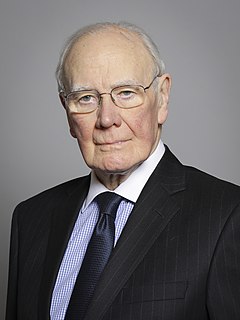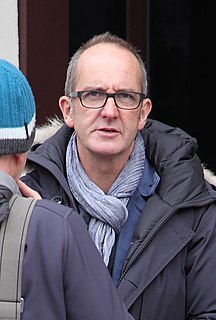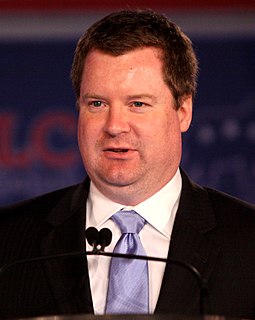Top 1101 Carbon Footprint Quotes & Sayings - Page 16
Explore popular Carbon Footprint quotes.
Last updated on April 21, 2025.
One of my favorite places is the Maldives, an all-Muslim nation in the Indian Ocean with a culture that stretches back 5,000 years. But since the highest point in the archipelago is a meter or two above sea level, even the next hundred are not guaranteed. They've committed to becoming the first carbon-neutral nation on Earth by 2020, building windmills as fast as they can.
To put it in context, the federal government was, at the beginning [of the Vancouver meeting], talking about a $15-per-tonne floor for carbon emissions. We're at $30 a tonne, so we're already double that. But our economy is growing at a faster rate - three per cent of GDP is our projected growth in British Columbia.
We need to go back to our relationship with nature and understand that those trees are our lungs. The earth is recycling as our body. The rivers are our circulation. This air is our breath. And the star stuff, the carbon, hydrogen, nitrogen that comes from distant galaxies is actually the molecules of your body.
I think it's important that people think about what they are doing and that includes what they are eating. I am 61 now and attitudes towards drinking and driving have changed radically since I was a student. People change their notion of what is responsible. They will increasingly ask about the carbon content of their food.
We now know that climate action does not require economic sacrifice. This is fully in line with the World Bank Group's findings. It is up to all of us to make smart policy choices that will help combat climate change. For example, putting a price on carbon is a necessary step and could drive resources and investments to a cleaner economy.
The majority of people are ready to throw their aims and purposes overboard, and give up at the first sign of opposition or misfortune. A few carry on DESPITE all opposition, until they attain their goal. These few are the Fords, Carnegies, Rockefellers, and Edisons. There may be no heroic connotation to the word persistence, but the quality is to the character of man what carbon is to steel.
We actually all care about the environment, and most people believe in climate change and believe that mankind has something to do with that - how much is scientifically debatable, but there is some effect and we all have an interest in reducing carbon emissions, just having cleaner air, cleaner oceans. It's something we can get behind.
We have to, in the next ten years, begin to decrease the rate of carbon dioxide emissions and then flatten it out. If that doesn't happen in ten years, we're going to be passing certain tipping points. If the ice sheets begin to disintegrate, what can you do about it? You can't tie a rope around an ice sheet.
Absent the net, we certainly couldn't have organized in 190 countries around the world. It's no substitution for face to face interaction - that's why we have "days of action" where people are in real contact with each other - but it's the cheap (and low-carbon) way to do an awful lot of the planning and organizing. And we can build, for $20k, a website as good as one Exxon can build for $20 million.
Our early 21st century civilization is in trouble. We need not go beyond the world food economy to see this. Over the last few decades we have created a food production bubble-one based on environmental trends that cannot be sustained, including overpumping aquifers, overplowing land, and overloading the atmosphere with carbon dioxide.
If you really could take the CO2, when you burn hydrocarbons - coal, for example - if you could really capture the carbon and sequester it - they call it CCS - if the extra capital cost, energy cost, and storage costs over time didn't make it super expensive, then that's another path that you could go down.
It's an appreciation for life generally, every bit of life, the smallest creature that lives in the intestines of termites that make termite life possible - to the leaves that turn out oxygen and grab carbon dioxide and with water make simple sugars that feed much of the world. I mean, these are everyday miracles.
Subsidies for the oil, gas and coal industries are projected to cost taxpayers more than $135 billion in the coming decade. At a time when scientists tell us we need to reduce carbon pollution to prevent catastrophic climate change, it is absurd to provide massive subsidies that pad fossil-fuel companies' already enormous profits.
And to use something as elegant as a tree? Imagine this design assignment: Design something that makes oxygen, sequesters carbon, fixes nitrogen, distills water, makes complex sugars and foods, changes colors with the seasons, and self-replicates. and then why don't we knock that down and write on it?
In the current setting the situation of the poor is neglected despite the grotesque wealth of the capitalist elites, and the dangers to the well-being of humanity associated with climate change are ignored despite a strong scientific consensus warning of the adverse, and possibly irreversible, consequences of further delays in reducing the level of greenhouse gas emissions, especially carbon.
Air is one we hold in common; it has a limited carrying capacity for pollutants and that's being used up by those who pollute the atmosphere. So we have to stop that externality. We would never allow a utility to put their coal slag in a dump truck and back it up to the city park and dump it in unlimited amounts for free. But that is exactly what we do with carbon dioxide and methane.
People in low-lying countries like Bangladesh with almost 140 million people who are managing to feed themselves, whose carbon emissions can't really be calculated (they are a rounding error in the UN's attempts to do national comparisons), and yet, most of whose people are at risk from increased flooding due to rising sea levels.
The burning of fossil fuels has altered the amount of carbon dioxide in the atmosphere so rapidly and so abundantly that now, we are driving not just the warming trend, not just the sea level rise that is a consequence of the warming trend that is melting polar ice and alpine ice, but also [ocean acidification].
When you think about what Homo sapiens are about, you almost feel that we are replacing ourselves. We won't be able to breathe and breed on this earth, so we replace ourselves with androids that can do. The androids can go up into space and take the future of humanity forward because maybe we just bow out with a carbon-based epoch.
Carbon dioxide pollution is transforming the chemistry of the ocean, rapidly making the water more acidic. In decades, rising ocean acidity may challenge life on a scale that has not occurred for tens of millions of years. So we confront an urgent choice: to move beyond fossil fuels or to risk turning the ocean into a sea of weeds.
I loved IRON MAN: Robert Downey Jr. has been and probably will be my favourite actor for a long time…but IRON MAN, THE INCREDIBLE HULK, SUPERMAN RETURNS and all the others feel a little like Saturday morning cartoons next to the carbon black glory that is 'The Dark Knight.' Trust me, *this* is the future of this sort of thing.
I have not been one who believed in the global warming. But I tell you, they are making a convert out of me as these blistering summers. They have broken heat records in a number of cities already this year and broken all-time records and it is getting hotter and the ice caps are melting and there is a build up of carbon dioxide in the air. We really need to address the burning of fossil fuels.
Reasons to be positive. The economic downturn could be the catalyst for positive change. It should be translated into the wake-up call we need for a major change in aspirations and lifestyles to save humanity from the ecological and economic disaster that would otherwise result from continuing on the high carbon and resource depleting path we have been pursuing
Today we find ourselves faced with the imminent end of the era of cheap oil, the prospect (beyond the recent bubble) of steadily rising commodity prices, the degradation of forests, lakes and soils, conflicts over land use, water quality, fishing rights and the momentous challenge of stabilising concentrations of carbon in the global atmosphere.
Some argue that now isn't the time to push the green agenda - that all efforts should be on preventing a serious recession. That is a false choice. It fails to recognise that climate change and our carbon reliance is part of problem - high fuel prices and food shortages due to poor crop yields compound today's financial difficulties.
Classical economics values things by seeing how much someone will pay for them. But this is where classical economics is wrong. What it fails to account for are all the 'externalities' - the services people regard as free goods: pollination services, flood protection, climate regulation, soil stabilization, carbon sequestration.
I am all emptiness and futility. I am an empty stranger, a carbon copy of my form. I can no longer find what I'm looking for outside of myself. It doesn't exist out there. Maybe it's only in here, inside my head. But my head is glass and my eyes have stopped being cameras, the tape has run out and nobody's words can touch me.
Becoming carbon neutral is only the beginning. The climate problem will not be solved by one company reducing its emissions to zero, and it won't be solved by one government acting alone. The climate problem will not be solved without mass participation by the general public in countries around the globe.
In recent years, America's wealthiest man has begun to tackle energy issues in a major way, investing millions in everything from high-capacity batteries to machines that can scrub carbon dioxide out of the air. With a personal fortune of $50 billion, Gates has the resources to give his favorite solutions a major boost.
I think the Caribbean countries face rising oceans and they face increase in the severity of hurricanes. This is something that is very, very scary to all of us. The island states in the world represent - I remember this number - one-half of 1 percent of the carbon emissions in the world. And they will - some of them will disappear.
Ordinary Americans can't pollute for free. You can't dump your trash on the sidewalk or throw all your refuse into your neighbor's yard. I don't understand why corporate polluters should be allowed to dump megatons of carbon, the most dangerous pollution in the history of the world, into our thin shell of an atmosphere, and not pay a penny to do it.
The irony is that one of the things people want to solve climate change is more market - more price on carbon so that markets have something to chew on when they think about climate change instead of the complete monopoly, the absurdity of allowing these guys to own the sky for free - socialise all of the costs and privatise all of the profits.
By the time we see that climate change is really bad, your ability to fix it is extremely limited... The carbon gets up there, but the heating effect is delayed. And then the effect of that heat on the species and ecosystem is delayed. That means that even when you turn virtuous, things are actually going to get worse for quite a while.
As the world's largest economy and second-largest carbon emitter, as a country with unsurpassed ability to drive innovation and scientific breakthroughs, as the country that people around the world continue to look to in times of crisis, we've got a vital role to play. We can't stand on the sidelines. We've got a unique responsibility.
There are skeptics who do not come to their view because they have a source of income from carbon polluters. I don't mean to imply that they're all in that category at all. There are also those who are also not motivated by ideological resistance for any role of government. But I don't know of any arguments or any presenters of arguments that overturn the consensus that I think have gained any legitimacy.
You are confronted with abysses of time that are, in a way, unfathomable. You see a painting in charcoal of raindeer and it was left unfinished and somebody else finished it. But through radio carbon dating we know that the next one completed the painting 5,000 years later. You're just blown away by the notion of passage of time. We have no relationship to that kind of depth of time.




















































